Related Research Articles

Michael Polanyi was a Hungarian-British polymath, who made important theoretical contributions to physical chemistry, economics, and philosophy. He argued that positivism is a false account of knowing.
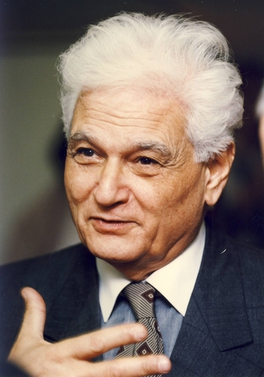
Jacques Derrida was an Algerian-born French philosopher. He developed the philosophy of deconstruction, which he utilized in numerous texts, and which was developed through close readings of the linguistics of Ferdinand de Saussure and Husserlian and Heideggerian phenomenology. He is one of the major figures associated with post-structuralism and postmodern philosophy although he distanced himself from post-structuralism and disowned the word "postmodernity".
Allan David Bloom was an American philosopher, classicist, and academician. He studied under David Grene, Leo Strauss, Richard McKeon, and Alexandre Kojève. He subsequently taught at Cornell University, the University of Toronto, Tel Aviv University, Yale University, the École normale supérieure, and the University of Chicago.
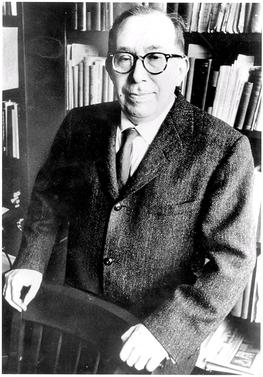
Leo Strauss was a German-American scholar of political philosophy who specialized in classical political philosophy. Born in Germany to Jewish parents, Strauss later emigrated from Germany to the United States. He spent much of his career as a professor of political science at the University of Chicago, where he taught several generations of students and published fifteen books.
Tacit knowledge or implicit knowledge—as opposed to formal, codified or explicit knowledge—is knowledge that is difficult to express or extract; therefore it is more difficult to transfer to others by means of writing it down or verbalizing it. This can include motor skills, personal wisdom, experience, insight, and intuition.

Charles Margrave Taylor is a Canadian philosopher from Montreal, Quebec, and professor emeritus at McGill University best known for his contributions to political philosophy, the philosophy of social science, the history of philosophy, and intellectual history. His work has earned him the Kyoto Prize, the Templeton Prize, the Berggruen Prize for Philosophy, and the John W. Kluge Prize.

Donald Herbert Davidson was an American philosopher. He served as Slusser Professor of Philosophy at the University of California, Berkeley, from 1981 to 2003 after having also held teaching appointments at Stanford University, Rockefeller University, Princeton University, and the University of Chicago. Davidson was known for his charismatic personality and the depth and difficulty of his thought. His work exerted considerable influence in many areas of philosophy from the 1960s onward, particularly in philosophy of mind, philosophy of language, and action theory. While Davidson was an analytic philosopher, and most of his influence lies in that tradition, his work has attracted attention in continental philosophy as well, particularly in literary theory and related areas.

Jean Paul Gustave Ricœur was a French philosopher best known for combining phenomenological description with hermeneutics. As such, his thought is within the same tradition as other major hermeneutic phenomenologists, Martin Heidegger, Hans-Georg Gadamer, and Gabriel Marcel. In 2000, he was awarded the Kyoto Prize in Arts and Philosophy for having "revolutionized the methods of hermeneutic phenomenology, expanding the study of textual interpretation to include the broad yet concrete domains of mythology, biblical exegesis, psychoanalysis, theory of metaphor, and narrative theory."
Bodymind is an approach to understand the relationship between the human body and mind where they are seen as a single integrated unit. It attempts to address the mind–body problem and resists the Western traditions of mind–body dualism. The term bodymind is also typically seen and encountered in disability studies, referring to the intricate and often inseparable relationship between the body and the mind, and how these two units might act as one. The field of psychosomatic medicine investigates the embodied manifestations of psychological processes.
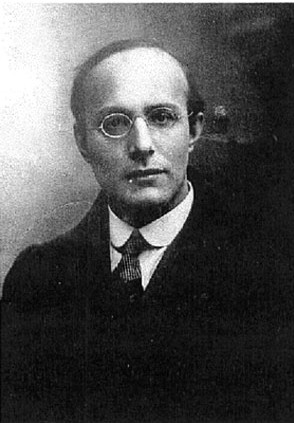
Karl Paul Polanyi, was an Austro-Hungarian economic anthropologist, economic sociologist, and politician, best known for his book The Great Transformation, which questions the conceptual validity of self-regulating markets.

Leszek Kołakowski was a Polish philosopher and historian of ideas. He is best known for his critical analyses of Marxist thought, such as in his three-volume history of Marxist philosophy Main Currents of Marxism (1976). In his later work, Kołakowski increasingly focused on religious questions. In his 1986 Jefferson Lecture, he asserted that "we learn history not in order to know how to behave or how to succeed, but to know who we are".
Postmodern theology, also known as the continental philosophy of religion, is a philosophical and theological movement that interprets theology in light of post-Heideggerian continental philosophy, including phenomenology, post-structuralism, and deconstruction.
Daniel A. Dombrowski is an American philosopher and professor emeritus of philosophy at Seattle University. Since 2009 he has served as Editor of the journal Process Studies, and is a past president of the Metaphysical Society of America (2018–19).

Peter Michael Stephan Hacker is a British philosopher. His principal expertise is in the philosophy of mind, philosophy of language, and philosophical anthropology. He is known for his detailed exegesis and interpretation of the philosophy of Ludwig Wittgenstein, his critique of cognitive neuroscience, and for his comprehensive studies of human nature.
1975 in philosophy
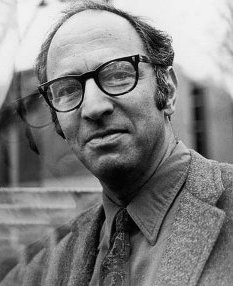
Thomas Samuel Kuhn was an American historian and philosopher of science whose 1962 book The Structure of Scientific Revolutions was influential in both academic and popular circles, introducing the term paradigm shift, which has since become an English-language idiom.
John Llewelyn was a Welsh-born British philosopher whose extensive body of work, published over a period of more than forty years, spans the divide between Analytical and Continental schools of contemporary thought. He has conjoined the rigorous approach to matters of meaning and logic typical of the former and the depth and range of reference typical of the latter in a constructive and critical engagement with the work of Jacques Derrida and Emmanuel Levinas.
Post-critical is a term coined by scientist-philosopher Michael Polanyi (1891–1976) in the 1950s to designate a position beyond the critical philosophical orientation. In this context, "the critical mode" designates a way of relating to reality that was initiated in the years preceding the Enlightenment period and since then has become the predominant intellectual mode of Modernity. Polanyi's ideas in this regard were extended in the 1960s and thereafter by William H. Poteat (1919–2000), drawing upon and combining in new ways certain ideas of seminal critics of culture since the Enlightenment such as Pascal, Kierkegaard, Arendt, Wittgenstein, and Merleau-Ponty. Those ideas were further extended by several of Poteat's students and by other members of the Polanyi Society.
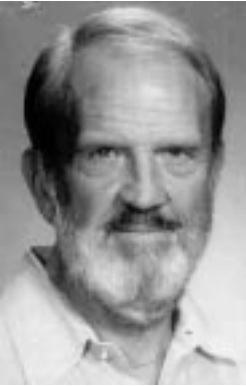
William H. Poteat was an American philosopher, scholar, and charismatic professor of philosophy, religion, and culture at the University of North Carolina at Chapel Hill from 1947 to 1957 and at Duke University from 1960 to 1987. During that time he did foundational work in the critique of Modern and Postmodern intellectual culture. He was instrumental in introducing scientist-philosopher Michael Polanyi and his Post-Critical philosophy to the United States. He was a master of the Socratic Method of teaching and identified himself a "practicing dialectician," skilled through the use of irony in "understanding and elucidating conflicting points of view" As a Post-Critical philosopher, he encouraged his students and the readers of his books to recover their authentic selves from the confusing, self-alienating abstractions of modern intellectual life. This task and purpose Poteat came to recognize as profoundly convergent with Michael Polanyi's critique of Modern Critical thought. His teaching and writing also drew upon and combined in new ways the ideas of seminal critics of modern culture such as Pascal, Kierkegaard, Arendt, Wittgenstein, and Merleau-Ponty—whose thinking Poteat came to identify as "Post-Critical", using a key concept from Michael Polanyi's Personal Knowledge: Towards a Post-Critical Philosophy. His papers are archived at the Yale Divinity School Library.
Michael Allen Fox is an American/Canadian/Australian philosopher who was based at Queen's University in Kingston, Ontario from 1966 until his retirement in 2005. He is the author of a number of books, including The Case for Animal Experimentation: An Evolutionary and Ethical Perspective —the arguments and conclusion of which he later rejected—Deep Vegetarianism, The Accessible Hegel, The Remarkable Existentialists, Understanding Peace and Home: A Very Short Introduction.
References
- ↑ Obituary Notice for Harry Prosch, 1917-2005; http://www.missouriwestern.edu/orgs/polanyi/TAD%20WEB%20ARCHIVE/TAD32-2/TAD32-2-fnl-pg6-24-pdf.pdf